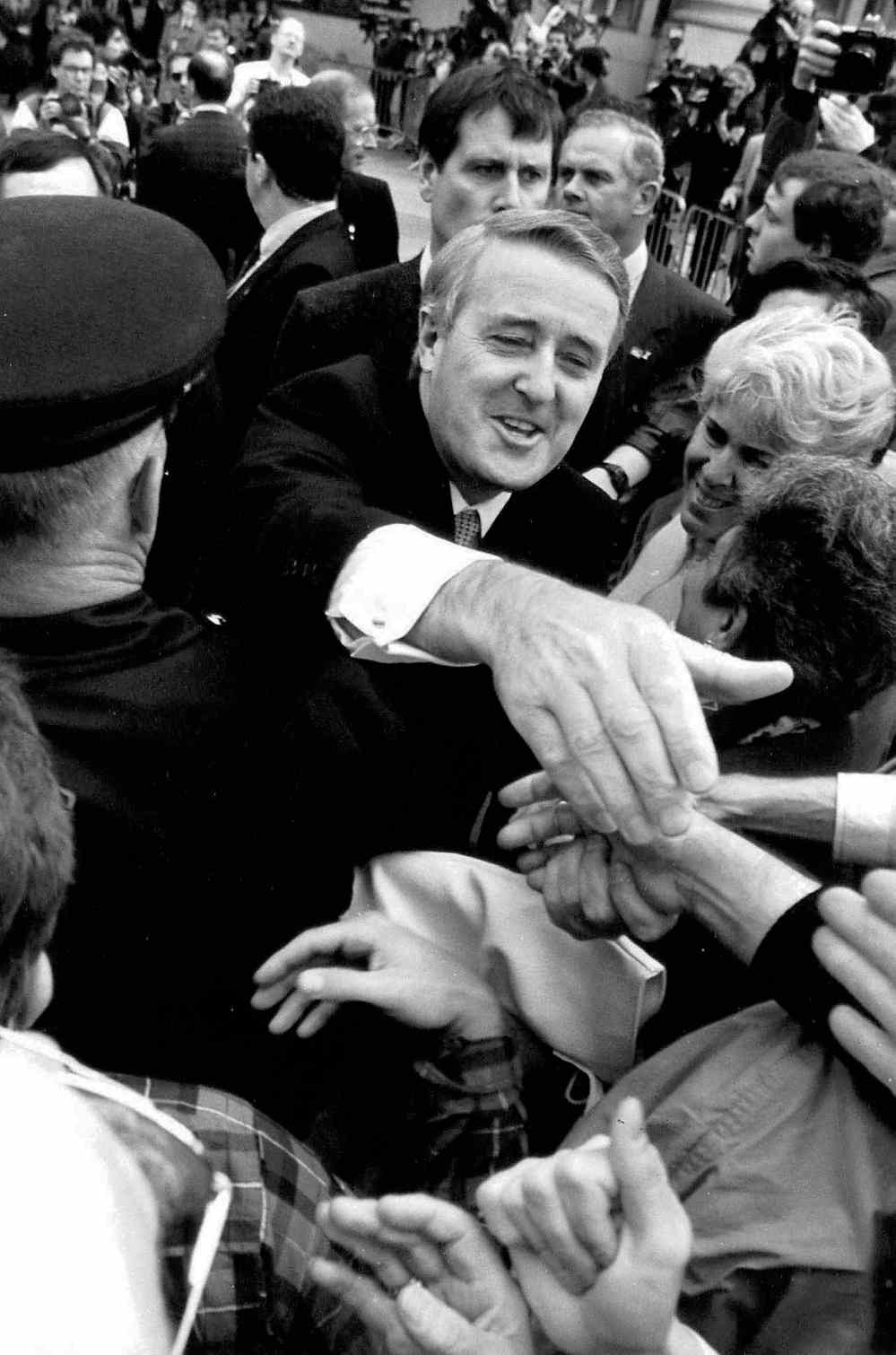Constitutional lessons far from over
Advertisement
Read this article for free:
or
Already have an account? Log in here »
To continue reading, please subscribe:
Monthly Digital Subscription
$1 per week for 24 weeks*
- Enjoy unlimited reading on winnipegfreepress.com
- Read the E-Edition, our digital replica newspaper
- Access News Break, our award-winning app
- Play interactive puzzles
*Billed as $4.00 plus GST every four weeks. After 24 weeks, price increases to the regular rate of $19.00 plus GST every four weeks. Offer available to new and qualified returning subscribers only. Cancel any time.
Monthly Digital Subscription
$4.75/week*
- Enjoy unlimited reading on winnipegfreepress.com
- Read the E-Edition, our digital replica newspaper
- Access News Break, our award-winning app
- Play interactive puzzles
*Billed as $19 plus GST every four weeks. Cancel any time.
To continue reading, please subscribe:
Add Winnipeg Free Press access to your Brandon Sun subscription for only
$1 for the first 4 weeks*
*$1 will be added to your next bill. After your 4 weeks access is complete your rate will increase by $0.00 a X percent off the regular rate.
Read unlimited articles for free today:
or
Already have an account? Log in here »
Hey there, time traveller!
This article was published 12/06/2015 (3751 days ago), so information in it may no longer be current.
It’s a quarter of a century since Canada’s first ministers fashioned the accord at Meech Lake designed to bring Quebec back into Canada’s constitutional family. The Meech Lake accord is no longer with us because it failed to win the unanimous approval of the provincial legislatures. But the lessons our country learned from it are still very much with us.
When the provincial premiers met at the Meech Lake conference centre on the last day of April in 1987, they believed with the Constitution patriated, if some part of the country had a serious problem with Canada’s Constitution, it could be fixed so all Canadians could bask in constitutional bliss.

It was Quebec’s constitutional discontents who prompted the Meech Lake accord. Quebec’s aspiration to be recognized as the homeland of one of Canada’s founding peoples opened up a whole era of mega-constitutional politics in the 1960s. Ironically, when the Constitution was finally amended in 1982 with patriation, the Charter of Rights and Freedoms, recognition of aboriginal rights and an increase in the provincial natural resource jurisdiction, there was nothing special for Quebec in the changes. In fact, with an all-Canadian amending formula that did not give it a veto over amendments reducing its powers, Quebec seemed to have lost power.
The Quebec National Assembly’s rejection of the patriation package of constitutional amendments of Canada’s had no legal force. But a sense of betrayal lingered among most francophone Quebecers. The country seemed to be living on thin ice with a major component of the federation regarding its Constitution as illegitimate.
So when Robert Bourassa, a Quebec federalist premier, came along with a very modest set of five proposals for reconciling his province, Brian Mulroney, a prime minister anxious to secure his name in Canadian history, could not resist. Nor could the provincial premiers resist the prime minister’s invitation to Meech Lake to fashion constitutional amendments out of premier Bourassa’s proposals.
The proposals seemed very modest compared with previous Quebec demands. Four of the five enhanced the role of all 10 provinces, not just Quebec. They would all be able to nominate candidates for appointment to the Supreme Court, to make constitutionally protected immigration agreements with the federal government and to opt out of new federal cost-shared programs in areas of provincial jurisdiction and out of constitutional amendments transferring power to Ottawa and receive fiscal compensation.
The proposal crafted especially to accommodate Quebec’s desire for some kind of special status in the federation was a new first section of Canada’s Constitution intended to be a guide to interpreting the Constitution. The Constitution was to be interpreted in a manner consistent with recognizing that “Quebec constitutes within Canada a distinct society.” But alongside that, it was also to be interpreted in a manner consistent with recognizing “the existence of French-speaking Canadians, centred in Quebec, but also present elsewhere in Canada, and English-speaking Canadians, concentrated outside Quebec.”
Explaining what this “distinct society” clause might mean was mission impossible. Its defenders had to argue out of both sides of their mouths. No, it would not give Quebec any additional powers. But yes, somehow this meaningless bauble would satisfy Quebec’s desire for special status.
But worse than the confusing gobbledygook of the “distinct society” clause were two other unforgivable features of the accord. It did not address the constitutional concerns of other parts of the federation, in particular the West’s under-representation in the Senate or recognition of aboriginal peoples’ inherent right to self-government. And, worst of all, the accord had been put together by 11 white men behind closed doors.
The lesson most of Canada’s political leaders took from these fatal flaws was Canada could pull off a mega-constitutional reform if it was really comprehensive in substance and really democratic in process. That led to the Meech Lake accord’s sequel, the Charlottetown accord. The Charlottetown accord was a potpourri of constitutional goodies for everyone — Quebec nationalists, Canadian nationalists, provincial governments, the West, the East, aboriginal peoples, women, multiculturalism etc. But of course not nearly enough for any of the above. The political elites did the drafting with some input from mini-constituent assemblies across the land. Then, on Oct. 26, 1992, the whole mess was put to a Yes or No vote in a popular referendum the no side won 54 per cent to 46 per cent.
The only people who could stomach any more of this mega-constitutional stuff were the Quebec separatists. In 1995, Quebec held a referendum on a murkily worded proposal for a conditional kind of Quebec independence 50.6 per cent of the Quebec electorate turned down.
Now — let’s hope — Canadians of all regions, nations, ethnicities, ideological persuasions and genders had learned if they form a single sovereign entity around their identities that they can say No to mega-constitutional proposals. I believe Quebecers learned the same thing about the Quebec people from their much closer referendum.
Learning this lesson has not left the country in a constitutional deep-freeze. Far from it. Since 1995, Canada’s constitutional system has continued to evolve through the normal mechanisms of constitutional adaptation: informal constitutional conventions such as including the three northern territorial governments in federal-provincial meetings; judicial interpretations of the Constitution, such as those recognizing native title to land as a constitutionally protected aboriginal right; organic statutes changing the operation of our parliamentary institutions such as fixed-date election laws; and the occasional amendment of the written Constitution such as those ending denominational school rights in Newfoundland and Labrador and Quebec.
Twenty-five years ago we Canadians with our patriated Constitution now in our hands thought it would be easy to do all kinds of things to it. Thanks to the Meech Lake accord and its Charlottetown accord sequel, we now know better.
Americans believe they have the perfect constitution if only they could live up to it. Our Canadian myth should be that we have a terrific country if only we don’t try for the perfect Constitution.
Peter H. Russell is a professor emeritus of political science at the University of Toronto where he taught from 1958-1997. Considered one of Canada’s most respect political scientists, he has published extensively on constitutional issues.



